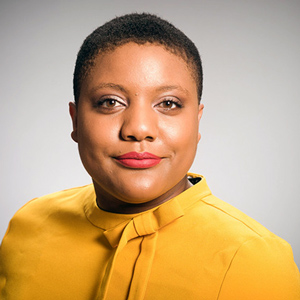After leaving her mark as a student reporter and editor at The Daily Gamecock, Jackie Alexander, 2009 journalism, has carved an impressive career, first at newspapers and now as director of University of Alabama at Birmingham Student Media.
In 2012, Alexander joined the College Media Association, which provides educational support for student media programs nationwide. She is currently serving as president of the association — the first woman of color elected to that role.
How did you get your start in leadership of student media?
I think my leadership began during my time at the University of South Carolina with The Daily Gamecock. I was news editor freshman year as the newspaper transitioned to daily printing. It was a momentous moment for TDG, and I’m grateful to have been part of it.
Congrats on being chosen president of the College Media Association. What does being the first woman of color in this position mean to you personally and professionally?
It’s gratifying to be in a position to serve the organization that has helped me grow in my career as a college media advisor. College Media Association helped me become a better advisor, connect with some dear friends and provided me with a lot of opportunities to reach and teach students across the country. I hope that my service as president paves the way for more diverse leadership in college media and inspires others to pursue advising as a career.

"My journalism degree and experience taught me to be curious about the world around me and never stop asking 'why?' "
Can you share any personal experiences you've faced as a person of color in your professional journey that have shaped your approach to leadership?
One of the most informative experiences I had was during my time with The Daily Gamecock. I asked a student reporter to write about race relations on campus and provided some contact points. The student turned in a story that said race relations at USC were positive. I knew from my own campus experiences, including white male students shouting [a racial epithet] at me as I returned to my residence hall, that it was inaccurate. I pushed the reporter to go back, talk to more people and write a more nuanced story. My lived experiences inform potential stories or projects in a positive way. So when I’m staring down our annual departmental budget and considering student pay, I think back to the times I worked for The Daily Gamecock until 1 a.m., slept and then worked at the college bookstore for an eight-hour shift. That drives me to make our department accessible and pay students fair wages.
How did your background in journalism and reporting play into this role?
My journalism degree and experience taught me to be curious about the world around me and never stop asking, “why?” That’s helpful in learning about the association, creating strategic plans and making decisions. I never stop asking why. I can’t do everything, but I want to understand everything.
What were the most significant lessons or experiences from your time as a student at USC that have helped shape your career path?
I learned so much from being at USC. I am eternally grateful for professors like Ernie Wiggins, Lisa Sisk, Scott Farrand and Doug Fisher. Fisher taught me the value of deep reporting and Wiggins always believed in me. Beverly Dominick, the internship coordinator for the journalism school, encouraged me to apply to national internships when I was fully prepared to work as a waitress for the summer. If it weren’t for her, I wouldn’t have interned at the St. Petersburg Times, which led to my first journalism job. I took Super Bowl Commercials with Bonnie Drewniany and honestly, for a lot of the semester, I thought it was a waste of time. I had a moment when I realized that I was in charge of my learning, not the professor. The reason I wasn’t getting much out of the class was because I wasn’t putting much into the class and my assignments. It really shifted my mindset and approach to the rest of my academic and professional career.
What do you find most rewarding about your role?
At a recent convention, I was at an advisors-only event. A new advisor walked up to me and said, “Do you remember me?” Unfortunately I am terrible with faces and didn’t. The advisor then told me he remembered being at one of my sessions years prior as a student and he was now an advisor at the convention with his own students. A lot of my work is contracts, partnership meetings, developing processes. But moments when I get to connect with students and advisors and see a direct result of the impact I have, I live for those. At the end of the day, that’s why I do what I do.
